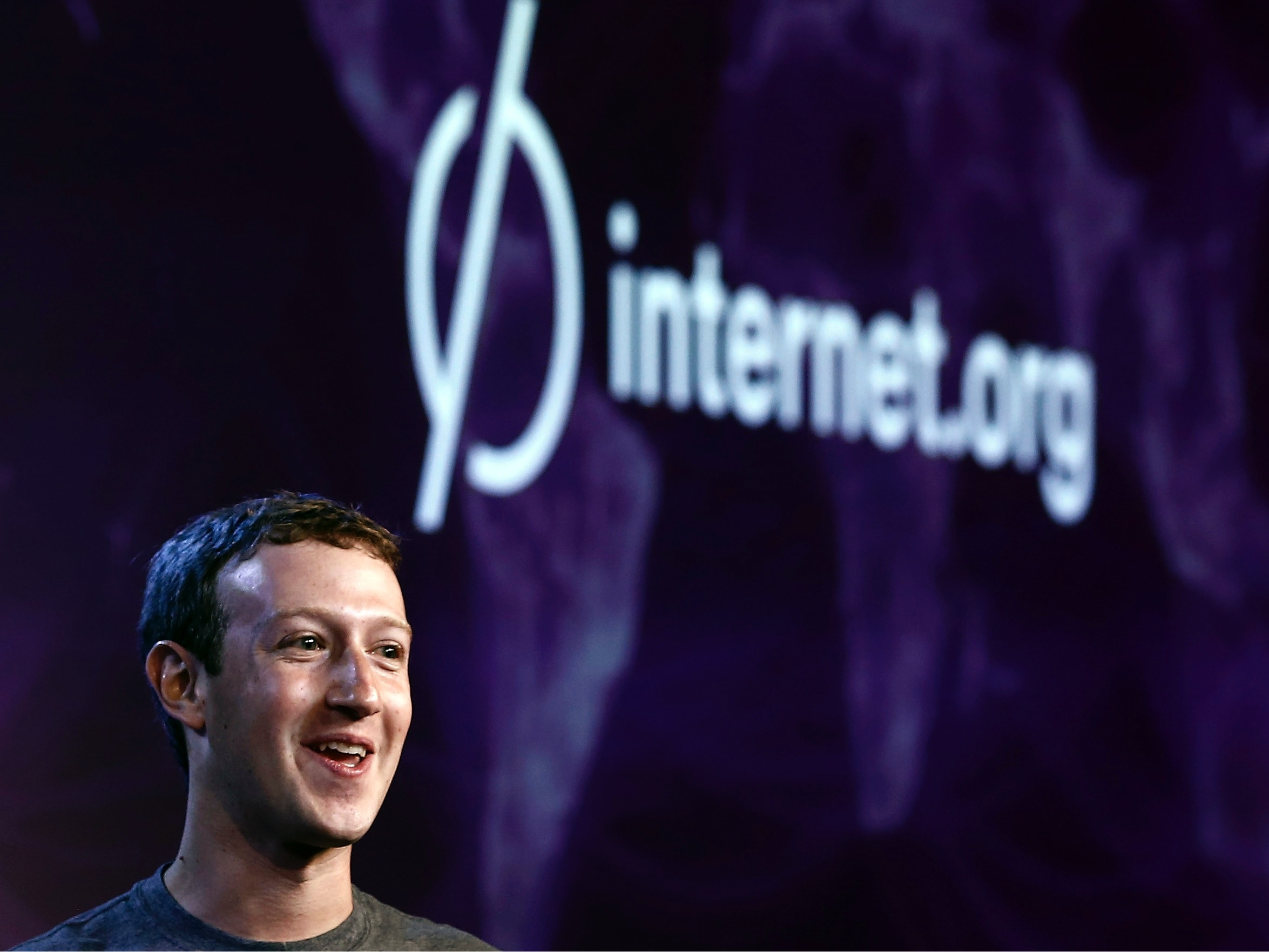Promoting Internet access is laudable, but questions about the role of governments and users' privacy have to be taken into account.
This is a translation of a statement that was originally published on derechosdigitales.org on 4 February 2015.
Mark Zuckerberg’s project has arrived in Latin America with a promise to provide free Internet to populations that have largely been excluded, and our governments have received the initiative with open arms. But can Internet.org really be a viable public policy?
“Internet.org is not the Internet”, says Carolina Botero, of the Karisma Foundation, upon the arrival with great fanfare of Facebook CEO Mark Zuckerberg’s project in Colombia. The initiative is scheduled to arrive in Mexico in the near future, and an Internet.org pilot project was launched in Paraguay in 2014.
Zuckerberg brought the project to Zambia in early 2014. The stated objective of Internet.org is to bring Internet access to the 60% of the world’s population that currently has no access, by way of agreements between Facebook, local Internet providers and governments. Those who own low-end mobile phones would be able to access Internet.org free of charge and, thus, obtain limited Internet services, such as access to Facebook, Google, Wikipedia and AccuWeather, among others.
It is said to be a model for public-private cooperation that brings with it nothing but benefits: Facebook, the local service provider and the Internet services selected to be part of the Internet.org package would have a new and enormous market to explore, governments would solve the problem of connectivity, and a very large number of people would finally have access to the benefits offered by the Internet.
But is it really a win-win situation? Beneath the altruistic idea of achieving an end to the barriers to Internet access it is important to analyse, above all, the role of governments in adopting Internet.org as public policy.
Business model or public policy?
A major problem with this project is its name—it says that what it offers is the Internet, but the truth is it only offers a window demonstrating certain services. This is a key point. If the Internet is an ocean, Internet.org is just a glass of water.
Internet.org, similar to other “zero rating” services, determines the Internet content on offer—and, as has often been noted, violates the principle of net neutrality—precisely because its economic model is based on this practice: open new markets to users that have largely been excluded and offer them Internet services via agreements previously established with Facebook.
A lucrative private business model can be found upon inspection of the logic behind the slogan “giving people free access to certain Internet applications”, presenting, as such, a more complex public policy problem that should be closely analysed by governments when Zuckerberg comes knocking on their door.
The most important question relates to who makes the final decision regarding which Internet.org applications will be offered in each country. According to Facebook’s vice president, the decision will be made between Facebook, the government in question and the service provider (Tigo in the case of Colombia). Will these decisions be made ensuring that public interest considerations are taken into account? What transparency standards will be applied?
It is also important to ask how governments will resolve the obvious issue of lack of competition inherent in the Internet.org model. How will they justify, for example, the prioritisation of WhatsApp over other online messaging services, particularly taking into consideration that other services may provide higher levels of security to their users?
The problem becomes even more interesting as many governments who see Internet.org in a favourable light also have plans for local versions of Silicon Valley that could develop national Internet industries. Will local applications have a space in the “new market” that Internet.org will undoubtedly open?
The doubts do not end there. There are also fundamental human rights issues at play, like user privacy on Internet.org since Facebook is based essentially on an advertising sales business model. The more Facebook knows about its clients, the better it can target advertising on its platform.
The idea that Internet.org is a free service is a lie. On this point we need to be very clear. Internet.org users will pay by providing their personal information to the businesses and institutions involved in this initiative, just like those of us who have access to the Internet every day, but with a fundamental difference. We have the possibility of choosing other services offering us options that respect our personal information and security. Internet.org does not offer free choice.
Taking into consideration Edward Snowdon’s disconcerting revelations, Carolina Botero has also expressed privacy concerns: “Since the Internet is decentralised, it is possible, but not easy, to conduct massive spying. For Internet.org users, however, it will be easy because it is a centralised service. Are they implementing measures to prevent this?”
Internet.org generates many questions, mostly because in the process leading up to its arrival in our countries there has been no dialogue with civil society or academics. It has only involved an agreement between the government, Facebook and local service providers. This leads one to be suspicious, not only of Facebook, which has taken on the bothersome role of a developed-world business that tells us how we should solve our local problems without taking into consideration our opinions. It also leads us to be fundamentally sceptical of our governments, which still fail to understand that the Internet and its governance, as an issue of public interest, should be a space for participation and diversity.



